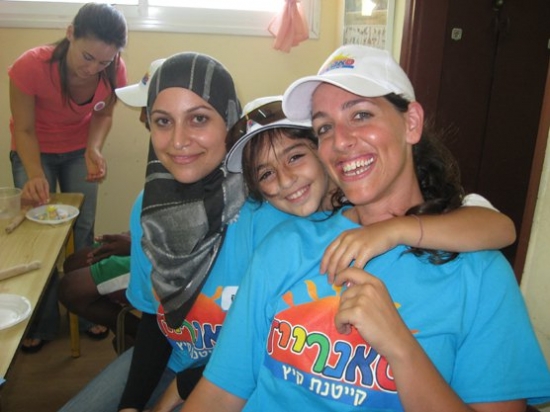
“The sun also ariseth, and the sun goeth down, and hasteth to his place where he arose” proclaims the narrator in Ecclesiastes 1:5. While the Biblical Book of Kohelet seems to lament the futility and transience of life, and the need to “eat, drink and be merry” while we can, the Talmud teaches that the real point is to make us aware of what lies above the sun, and devote ourselves to God. It is unlikely that the organizers of the brand new Israeli Camp Sunrise considered Kohelet when they named their project, but the camp is all about combining fun (and good food) and performing mitzvot – teaching coexistence, tolerance, caring and helping one’s peers. Bright banners sway welcomingly at the gate to Sunrise, which is tucked away in the Even Yehuda Community Center just south of Netanya. A warm sunny logo shines from every shirt - blue and green for the counselors, white for the kids. A misting tent sprays a fine dew when the sun is too hot even for Sunrisers - the campers frolic in the coolness, laughing with glee. There is art and music and theater and dance; workshops on marzipan-making and chocolate-molding and Beat-Box. There is outdoor training and photography, swimming and soccer. And there is a Rest Room where campers can sleep if they are tired. And a doctor and nurses on call. The classrooms and dining hall are wheelchair accessible. Camp Sunrise caters for children who are fighting cancer and their siblings who are helping them win the fight.
“Although there are lots of programs for kids with cancer in Israel, this is the only long-term daily option,” explains Sara Sless, who heads the Sunrise Israel Amuta (registered charity). Based on an American model set up by Arnie Preminger, CEO of the Barry and Florence Friedberg Jewish Community Center in Long Island, the camp is run in conjunction with Israel’s Camp Kimama and offers three weeks of supervised fun and learning in a safe, pampering environment. This year 120 campers aged between four and sixteen (40% fighting cancer, 60% siblings) arrive every morning at 08.30, and forget about their treatment until long after lunch time. Campers are bussed in under supervision from around the country, and taken home again when the camp ends at 15:00. A few times a week the whole group goes to nearby Kadima for a dip in the pool. Hot lunches are served every day by devoted volunteers who ladle out lots of love along with the soup and salads, and bread and spreads are available constantly for kids on steroids, who need to eat.
“We aim to be the best camp in Israel, where the kids can learn, enjoy themselves and make new friends,” says camp director Deddy Paz. “We have all the usual activities that you would expect: sport, Frisbee competitions, obstacle runs. We just adapt ourselves to our campers’ needs.” So the soccer ball is soft and spongy to eliminate hard knocks, the Frisbee has a special no-bruise design, and the obstacle course is friendly and safe. There are no computers: these campers have enough of them at home and in hospital; at Sunrise the emphasis is on personal interaction. Bottles of antibacterial gel stand guard at every door against infections, and everyone wears hats - both against the sun and so that the children without hair don’t stand out. “Unless it is necessary for practical reasons our counselors don’t know who is fighting cancer and who is a sibling,” says Paz. “Everyone is equal and everyone is here to have fun.”
Fun includes a group makeup session with brightly colored lipsticks and face-paints. In an air-conditioned classroom black and white campers, Russians and Ethiopians and Arabs and Jews, religious and secular, healthy and fighting to be healthy, apply deep purples and oranges to their eyelids. In one corner of the room a little girl in a wheelchair is totally absorbed in drawing on another child’s cheek; every now and then her friend wheels her to the mirror so she can observe the progress on her own face. In another room a group of youngsters threads vivid skeins of yarn into shapes; a little girl in a headscarf laughs animatedly as she winds the wool. Everyone is equal and everyone is having fun.
Obviously there are challenges: two of the campers are almost blind – one from a brain tumor and one from treatment; one sibling is so wild that he is almost always isolated and kept busy with round-the-clock personal supervision. One child comes to camp in a helmet in case she falls; the sister of a cancer sufferer who twisted her ankle and was taken to be X-rayed screamed in terror as doctors approached. Camp personnel had to explain her dread of hospitals to the bewildered medical staff. Further complicating the dynamics is the date: camp fell bang in the middle of Ramadan this year, when the twenty-seven Arab kids in the group and their five counselors were fasting. In addition, each day has to be planned as a complete unit; children who need chemotherapy have to miss camp sessions, although this year saw an 80% attendance each day.
All the kids with cancer are referred to the camp by social workers from hospitals. “The social worker from Ichilov hospital, for example, came to visit her patients and just couldn’t believe how happy the kids were,” says Sless. “And for the parents it’s a much needed break. We’ve had feedback from families who say that for the first time in ages they talk to their children about something other than treatment and medication over dinner.” One couple thanked the camp for giving them the opportunity to have their first breakfast together in a year; another woman confessed that the time alone with her husband that Sunrise provided had helped shore up her marriage.
Camp Sunrise costs half a million dollars each year and is absolutely free of charge for all participants. This year the New York Federation of UJA was a major backer for the camp, and other families and organizations in the United States also contributed funds. Sunrise America raised money and provided knowledge and protocols, such as how to meet medical needs (doctors and nurses on call, a ratio of one counselor per three campers). Most of the forty counselors are after the army and many have additional experience from Shnat Sherut (a year of volunteering) in Israel and from working in American summer camps. The counselors are paid, but many of the other staff volunteer their time – all the doctors, many of the nurses, and various adults who have heard about the camp and want to help serve meals or run workshops. Even the police got involved – after a routine security check of the premises a team of policemen returned with forensic equipment and laser guns and taught the mesmerized campers a thing or two about detective work.
Three weeks fly by and the camp is over all too soon. “Next year we hope to have three hundred campers, and run for four weeks,” says Sless. To this end Camp Sunrise plans to raise money through sponsored runs and internet campaigns, as well as donations from funds and private individuals and in-kind services. Plans include working with local community centers (under the auspices of the Israel Association of Community Centers) throughout the year to see if they can help with subsidized after-school activities or babysitting for siblings. If budget allows, Sunrise would like to run shorter camps during Chanukah and Pesach, and perhaps initiate a Shishi-Sameach (“Happy Friday”) on the lines of the American “Fun Sundays.”
With enough money the sun at Camp Sunrise will never have to set until all the children fighting cancer have won their battle. Yishar koach – all the honor in the world - to the wonderful team who is making their struggle so much easier.
For more details on Camp Sunrise please contact Sara Sless at ssless@jcca.org 02625 1265#3, or visit www.sunriseisrael.org.il
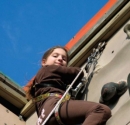 DEAR EDITOR 157 MAGAZINE
DEAR EDITOR 157 MAGAZINE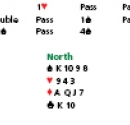 COUNTING ON INFERENCE
COUNTING ON INFERENCE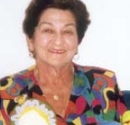 SHULAMIT LAMIE RAVINSKY 1925-2010
SHULAMIT LAMIE RAVINSKY 1925-2010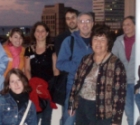 Midrash Meets Tel Aviv Culture
Midrash Meets Tel Aviv Culture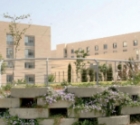 The Open University of Israel
The Open University of Israel MUMMIES, MYTHS AND MAGIC CATS IN ANCIENT EGYPT
MUMMIES, MYTHS AND MAGIC CATS IN ANCIENT EGYPT Pamela Peled
Pamela Peled